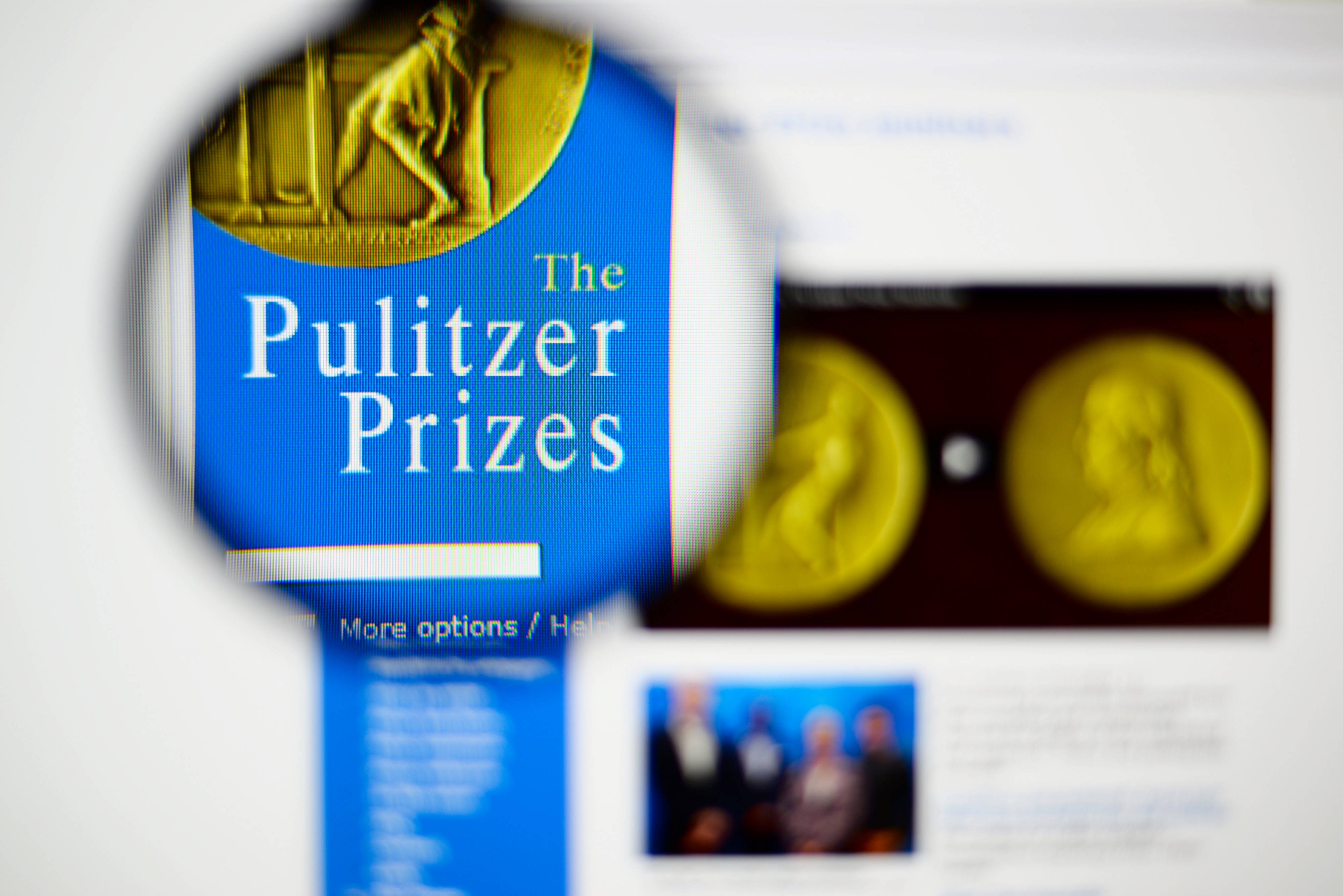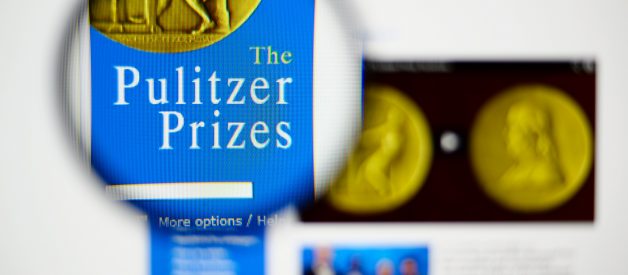Learn what?s ?a distinguished representation of American life and get a good ?read? in the process
 Joseph Pulitzer instituted the Pulitzer Prizes in 1904. Photo: Shutterstock
Joseph Pulitzer instituted the Pulitzer Prizes in 1904. Photo: Shutterstock
I think I?m pretty well-read. I consume 3?5 books per month, averaging a little over fifty per year when I combine my intake of print books and audiobooks. I read reviews, browse bookstores, and peruse publishing websites, selecting books that appeal to me but that are also notable in the world of literature.
So imagine my surprise when I discovered that I have only a 20% reading rate of the Pulitzer prize-winning novels over the last twenty years.
As a reader, writer, and lover of history, I should know what is considered to be literature worthy of acknowledgment: profound stories articulated in meaningful language that express the experience of living in America.
Maybe you?re doing better than I am, but if not, there?s still time.
Joseph Pulitzer, the giver of prizes
Joseph Pulitzer was born to a wealthy Jewish family in Hungary in 1847. Because of a severe case of wanderlust in his late teens, Pulitzer tried to enlist in three different mercenary groups. He was rejected each time because of poor eyesight and bad health. Pultizer was in Germany when he was recruited by a Union Army officer to take the place of a draftee who didn?t want to serve during the Civil War. It was a legal practice, but once Pulitzer arrived in Boston, he supposedly jumped ship. He instead enlisted with a division called the Lincoln Calvary before working his way to St. Louis after his service. Already fluent in German and French, Pulitzer focused on learning English.
While in St. Louis, Pulitzer watched two German men playing chess and offered strategy on a chess move. The men were editors of a German newspaper, engaged Pulitzer in conversation, and then hired him as a reporter. The rest ? as they say ? is history. Pulitzer earned a reputation as an energetic, reliable reporter, and when the German newspaper was failing, he took over. With a shrewd business sense, he maneuvered a series of mergers, gained a reputation as a mover and shaker in the world of journalism, and eventually ended up owning the St. Louis Post-Dispatch.
To make the St. Louis Dispatch a success, Pulitzer devoted countless hours, working from dawn until midnight, overseeing every detail of the paper. His strategy was to make the paper important to the people.
James Barrett, the author of Joseph Pulitzer and His World, noted
?Appealing to the public to accept that his paper was their champion, Pulitzer splashed investigative articles and editorials assailing government corruption, wealthy tax-dodgers, and gamblers. This populist appeal was effective, circulation mounted, and the paper prospered.?
The exposure of corruption was a theme for Pulitzer throughout his lifetime. In modern times, more than 100 years after he established his awards, more ?Pulitzers? for journalism have been granted to the exposure of corruption than in any other subject.
Working tirelessly to make the paper a success, Pulitzer?s health declined. The long hours and relentless energy took their tool, but Pulitzer refused to slow down. Instead, he negotiated a deal to take over The New York World. One of his many accomplishments at The World was to raise enough money from subscribers to build the structural base necessary for the Statue of Liberty to stand on. The Statue was waiting to be shipped from France until the base was built and she could be mounted on it when she arrived. The fact that the subscribers answered to Pulitzer?s campaign to raise these funds was a testament to the strength of his paper.
Journalistic life was not easy. At the beginning of his journalistic career, Pulitzer often employed what is now known as ?yellow-journalism? or sensationalism to engage readers. Other papers followed suit. Frustrated by the growth of The New York World, other jealous editors and publishers made Pulitzer the target for attacks and soon began shooting anti-sematic arrows at him. Most notably, the publisher of The Sun, Charles Dana, began a tireless crusade against Joseph Pulitzer, describing him as
?the Jew who had denied his race and religion.?
Dana was attempting to alienate New York Jews from their readership of The World.
The taunts furthered Pulitzer?s decline in health, and in 1890, Pulitzer resigned from being the editor of The World and was never again a physical presence in the newsroom. He did, however, maintain control of his newspaper, but he did it from the secluded confines of his yacht and his residences.
After the Spanish-American war in 1898 ? which was influenced by Pulitzer?s paper and its incessant rantings against the Spanish who did not want to grant Cuba independence ? Pulitzer stopped using ?yellow journalism.? The paper became less strident and continued to focus on uncovering corruption and fraud and fighting for freedom of the press. Pulitzer campaigned for the training of journalists and an official school of journalism, the first of which was established at Columbia University after his death.
Pulitzer wanted to recognize writers, journalists, photographers, poets, and public servants who he saw as working for the common good. In his will, Pulitzer provided financial compensation for prizes to be awarded under the direction of a Pulitzer Board at Columbia. The first awards were presented in 1917.
Joseph Pulitzer?s legacy to journalists, writers, and artists is priceless:
?Our Republic and its press will rise or fall together. An able, disinterested, public-spirited press, with trained intelligence to know the right and courage to do it, can preserve that public virtue without which popular government is a sham and a mockery. A cynical, mercenary, demagogic press will produce in time a people as base as itself. The power to mould the future of the Republic will be in the hands of the journalists of future generations.?
 Photo by Jaredd Craig on Unsplash
Photo by Jaredd Craig on Unsplash
Fiction awards over the last twenty years
Pulitzer prizes are awarded in multiple disciplines, from drama and music to photography, reporting, public service, and non-fiction, but I?m most interested in the fiction.
A Pulitzer board based at Columbia University makes the final decision on which work is the winner for that year. The criteria is simply to present
?distinguished fiction published in book form during the year by an American author, preferably dealing with American life.?
Members of the Pulitzer Board determine what is ?distinguished,? and in order for a prize to be awarded, a majority of the Board has to agree. The Board consists of some of the greatest minds of modern journalism: editors, publishers, presidents, professors, and writers from the Washington Post, Associated Press, The New York Times, Columbia University, The Mellon Foundation, Bloomberg, NPR, New York University, Harvard, the New Yorker, ProPublica, and The Texas Tribune.
Here are their picks from the last two decades.
How many have you read?
- 2000 ? Interpreter of Maladies by Jhumpa Lahiri
- 2001 ? Amazing Adventures of Kavalier & Clay by Michael Chabon
- 2002 ? Empire Falls by Richard Russo
- 2003 ? Middlesex by Jeffrey Eugenides
- 2004 ? The Known World by Edward P. Jones
- 2005 ? Gilead by Marilynne Robinson
- 2006 ? March by Geraldine Brooks
- 2007 ? The Road by Cormac McCarthy
- 2008 ? The Brief, Wondrous Life of Oscar Wao by Junot Diaz
- 2009 ? Olive Kitteridge by Elizabeth Strout
- 2010 ? Tinkers by Paul Harding
- 2011 ? A Visit from the Good Squad by Jennifer Egan
- 2012 ? NO AWARD?failure of any book to achieve a majority on the Board
- 2013 ? The Orphan Master?s Son by Adam Johnson
- 2014 ? The Goldfinch by Donna Tartt
- 2015 ? All the Light We Cannot See by Anthony Doerr
- 2016 ? The Sympathizer by Viet Thanh Nguyen
- 2017 ? The Underground Railroad by Colson Whitehead
- 2018 ? Less by Andrew Sean Greer
- 2019 ? The Overstory by Richard Powers
My 20% rating is embarrassing, considering that I love books and make them a focus of my career and my life, but if you?re like me, you can take comfort in the fact that a Pulitzer doesn?t guarantee recognition. Brennan and Clarage, authors of a 1999 book entitled Who?s Who of Pulitzer Prize-Winners, suggest,
?Many, if not most, of the honored books have not been on the bestseller lists.?
I can?t read enough. I can?t read fast enough to take in all the pages that I want to absorb. I can?t ignore the rest of life and live with my nose in a book 24-hours a day although there are times I?d like to try! My 50+ books a year is a good amount, especially when you consider that every day, I?m also ingesting the New York Times, a bit of Smithsonian, several copywriting blogs, and dozens of articles on Medium.
But it?s not enough.
When I have to choose what to read next, I?m going to make sure that my list includes the Pulitzer prize-winner of the current year, and I may begin a campaign to read all the award-recipients of the last decade.
That way, I?ll know what the great minds of America perceive to be ?distinguished literature,? and I?ll raise my failing grade of 20% to a much higher, passing grade of 70% or more.
If you like this article, you may also enjoy these:

